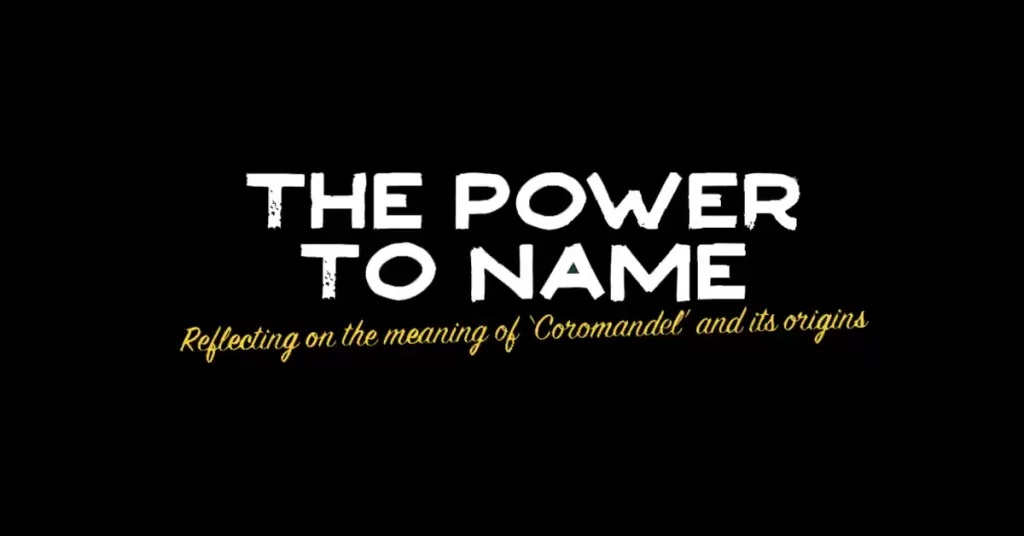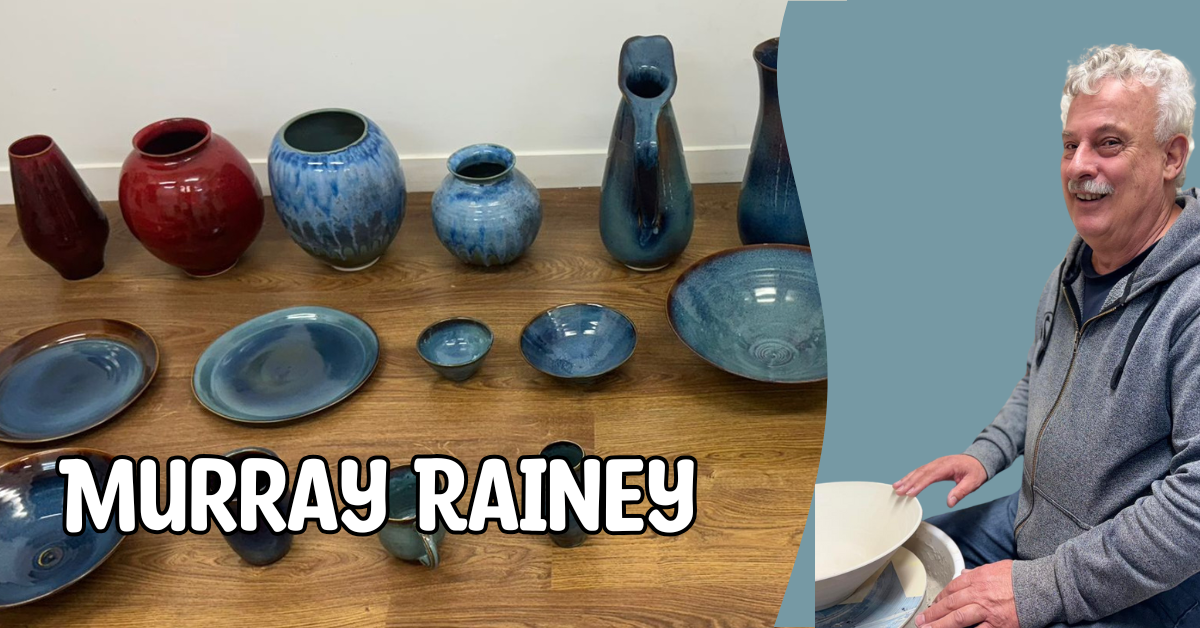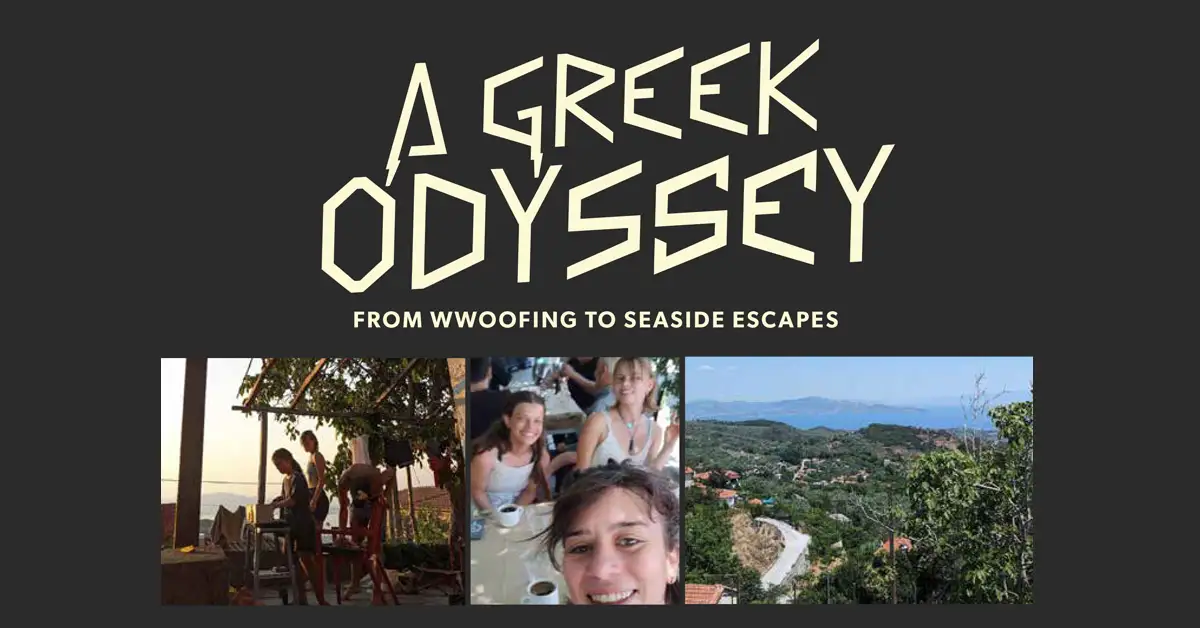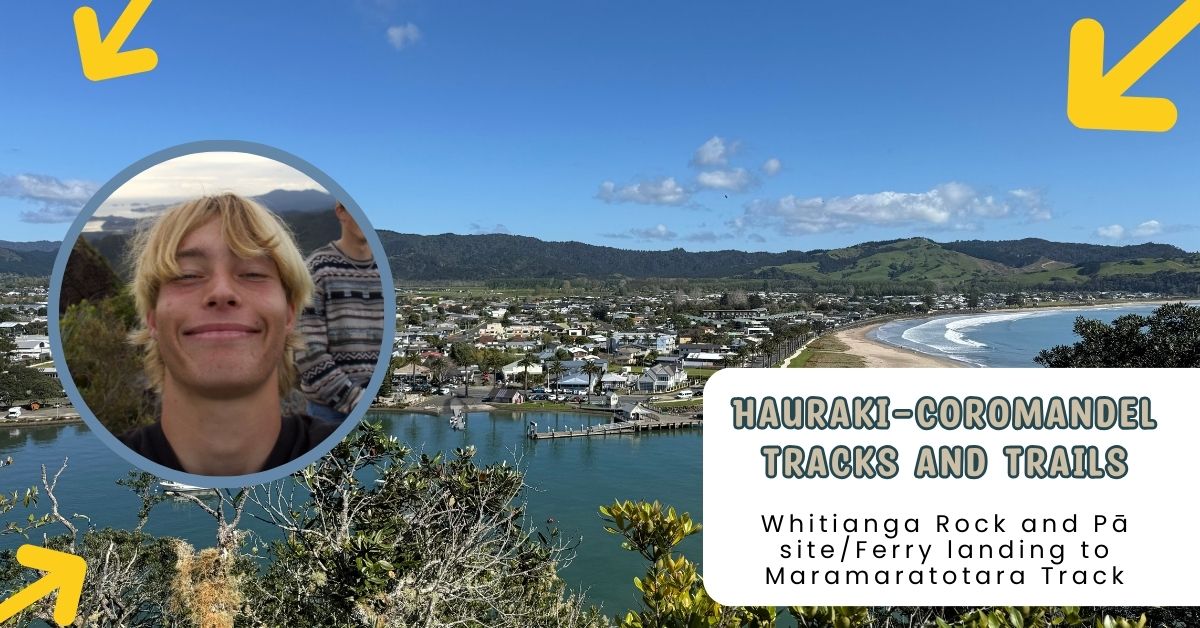
I first came to the Peninsula when I was 17 and I fell passionately in love with the place, despite not knowing my Irish great-great-great-grandmother was buried here. I also fell in love with the word ‘Coromandel’ which sounded so exotic and romantic. I knew it was from India, but I had no idea how it got here. At that stage I was not asking critical questions about the names or their origins, let alone the colonisation of the area, just basking in the beauty and power of this extraordinary landscape. But names are questions and eventually the questions get louder.
I have Betty Williams of Ngāti Maru/Ngāti Pūkenga at Manaia to thank for the questions that now haunt me every day about where we are, who we are and what is the power to name the land. I would also have to credit a small glass box across the road from the bottom pub on Wharf Rd, Kapanga (Coromandel town), for the specific questions I am now asking about the name ‘Coromandel’. In that glass box is a small replica of the HMS Coromandel, the ship that arrived at Umangawha (Colville) in 1820 in search of kauri spars, and somehow bequeathed its name to the town and the Peninsula.
Was the area nameless in 1820? Of course not. We actually live in Hauraki, on the Peninsula sometimes called Te Tara o Te Ika, the barb of the fish. The Hauraki people have named every harbour, creek, river, hill, mountain and village. They named Kapanga long before HMS Coromandel showed up.
What about the ship itself? I did some research and found that the ship was originally Malabar, owned by the British East India Company. My ancestor Billy Glascott worked as a soldier for that colonising company from 1814, so I have a particular interest in their history. The ship was purchased by the British Navy who renamed it the HMS Coromandel. The real spellings of Coromandel (a coast in south-eastern India) are different depending on which local language you are using, but this is the Anglicised version, in other words, incorrect.
In June 1820 the ship sailed into Umangawha (a harbour that Cook visited and imposed the name Colville Bay or Cabbage Bay upon it). The ship stayed in Tīkapa Moana (Hauraki Gulf) for the next year collecting kauri timber for the next European war, but it also brought a pandemic. According to the Polynesian Society Journal of 1910, referenced by NZETC historical papers, the pandemic spread across the whole of the North Island. Its impact was recorded in an article by Percy Smith (land surveyor) and William Skinner (anthropologist)* who heard about it from a Taranaki kaumātua, Watene Taungatara, at Waitara in 1897. No one was sure whether the pandemic was measles or flu but it was known to be the second major pandemic to hit Aotearoa, the first being in 1795.
The pandemic was so disastrous that it was named ‘Te Ariki Nui’, the great sickness, and tohunga in the Taranaki rohe were making replicas of the HMS Coromandel and performing rituals to try and curb the many thousands of deaths connected to it. It is said there were not enough healthy people to bury the dead at the peak of the pandemic.
So, obviously, it was a great idea to name the Peninsula after it.
I know this is not a pleasing revelation to people who are invested in the name ‘Coromandel’ to consider renaming the Peninsula as Hauraki. Many of us have groups and products and places connected to the word ‘Coromandel’. But the power to name places which already have names is the power to do a violence. It’s a deliberate strategy to erase the local communities and their authority over the place.
Finding out about the plague ship has changed my relationship with this C word. There is no going back to some sanitised version of where we are and who we are. There is only an opportunity to learn more about where we really are and to give more respect to Hauraki. We can learn our history and choose to respect Kapanga, Hauraki and all those important names, or we can pretend none of this ever happened. We don’t have the power to change this history, but we have the power to do better now.
*History and Traditions of the Maoris of the West Coast. (1910). Polynesian Society Journal. https://nzetc.victoria.ac.nz/tm/scholarly/tei-SmiHist.html
Words by Catherine Delahunty
Help us take Coromind Magazine to new heights by becoming a member. Click here






